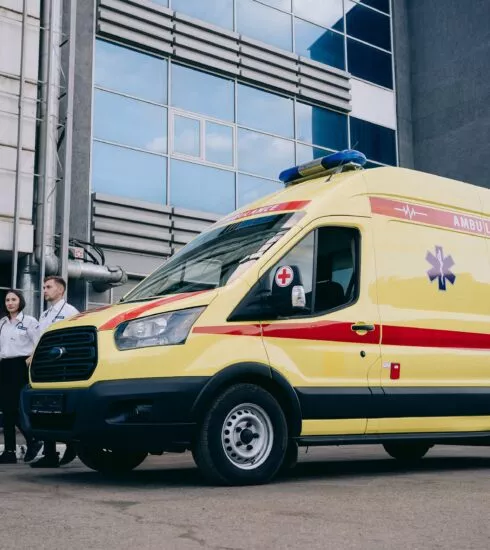How to protect yourself from fraudsters when looking for work abroad

Nadiya Matveeva continues to share valuable advice that will help ensure life in wartime in the section “Reliable advice” on STB. Yes, the TV presenter told what to remember in order not to run into scammers while looking for a job abroad.
How to protect yourself from fraudsters when looking for work abroad:
- Beware of human traffickers. Do not accept job offers from strangers at border checkpoints, train stations, and on the streets of big cities.
- Don’t get into people’s cars who actively impose their help on you.
- Do not leave children unattended and do not trust them to new acquaintances.
- In order not to fall into drug trafficking schemes, never agree to transport unknown bags or packages across the border.
- Do not respond to ads with a very high salary. Look for these offers on the Internet – if they have been wandering around the sites for a long time, it could be a scam.
- Check the website of the employer or recruitment agency. Newly created pages about which there are few mentions in search engines should alert you.
- If you are going to an interview, let your relatives and local volunteers know the address in advance.
- If at the interview you are not asked clarifying questions about your experience and do not make any demands, everything goes too easily and quickly – it is very likely that they want to deceive you.
- We decided to try it – in no case do not sign contracts in a language you do not understand. But do not agree to illegal employment either: the law protects first of all those who comply with it. It is better to make a translation of the contract and sign it. Pay attention to vague wording: anything can be hidden behind the phrase “and other types of work”. Remember that fraudsters can offer to sign a contract with a lower salary than you agreed – “so that the tax is less.” There are no guarantees that verbal agreements will be valid in such a case.
- Do not give your documents to anyone under any circumstances. Fraudsters can use them for financial fraud, you may be forced to do something illegal by blackmailing you by not returning documents. Therefore, give your passport only to border guards and the police.
If you need help abroad:
- Emergency line in the EU: 112;
- National hotline for combating human trafficking and counseling migrants: 527 (from mobile), 0-800-505-501 (from landline);
- Hotline for the prevention of domestic violence, human trafficking and gender discrimination “La Strada”: 116 123 (from mobile), 0 800 500 335 (from mobile and landline).
Photo: Pixabay





